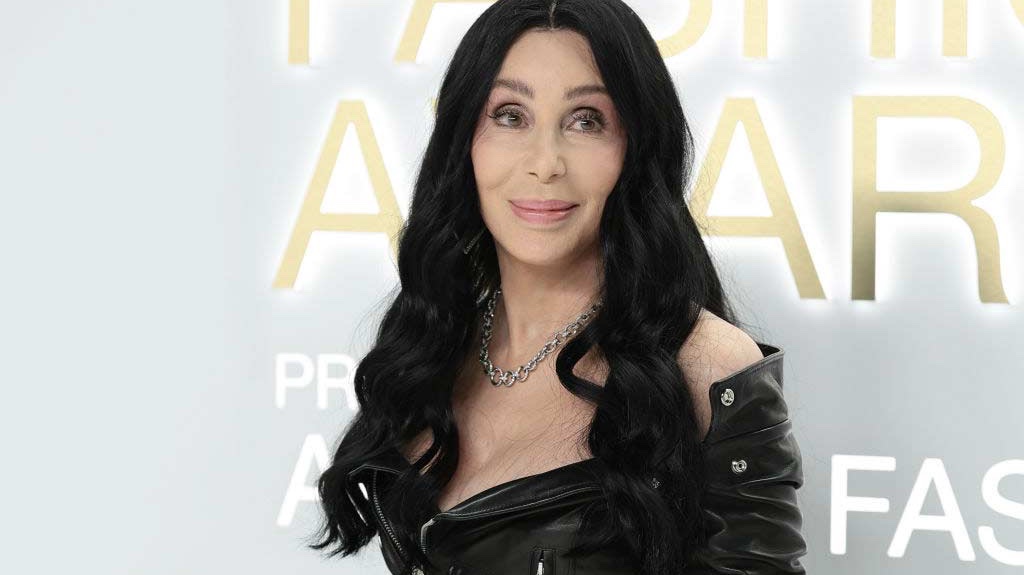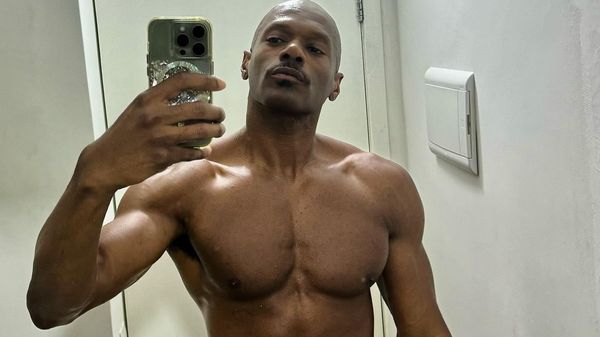September 14, 2013
Scars Run Deep :: Richard Alther on His Novel 'The Scar Letters'
Kilian Melloy READ TIME: 7 MIN.
Richard Alther has written extensively about gardening and homesteading and pursued a parallel career as a painter whose works have been featured in galleries around the country (Boston, Los Angeles, Dallas) and abroad (Montreal and London).
Starting with 2008's "The Decade of Blind Dates," Alther became a novelist. The story follows a gay man's middle-age coming out of the closet and also out of a marriage to a woman, to set out on a quest for true love. It's a book that established Alther as a voice to be heard in gay literature, with Richard Labonte declaring the debut opus "hilarious" and Richard Stevenson calling it "spectacularly witty."
Alther's second novel, "Siegfried Follies," tackled an issue that has, from time to time, been described as a possible parallel and precedent for the persecution gays face, especially in violently homophobic nations: The Holocaust. Two boys -- one a Hitler Youth, the other a Jewish child -- find that in order to survive, they must set aside assigned enmities handed down from their elders, and rely on one another.
Both Alter's sense for history and his insights into the gay male psyche come into play in his newest novel, "The Scar Letters." Rudy, a retiring (almost reclusive) man of forty, has lived nearly two decades with the scars left in his soul as well as his flesh by a pair of marauding, gay-bashing youths. For years, Rudy has made do with his gardens and his best friend, Tex, a spectacularly handsome hunk who is the opposite of himself in almost every way: Outgoing, jubilantly sexual and an activist who has made gay causes his life's work.
Rudy, meantime, meditates on the evening he was attacked, assaulted, and then all but blamed by a passing police officer for his own misfortune. But when Rudy finally decides to file a report on the long-ago attack, he discovers the identities of the boys -- now men -- who scarred him, and profoundly affected his life. It's no longer enough to make excuses for his assailants: Rudy has to decide whether to track them down and hold them to account for their crimes or forgive them once and for all.
Alther is an athlete as well as an author, gardener, and painter, and all of his fields of expertise come into play in a novel that delves deep into Rudy's rich inner word even as it casts a long, piercing look at centuries of anti-gay violence, the bloody legacy of which continues, even now, to exact a toll in lives and suffering.
Ricahrd Alther chatted with EDGE recently about his newest novel.
EDGE: You've written two novels before this, "The Decade of Blind Dates" and "Siegfried Follies." Do you see (or intend) an arc being described by all of these books if taken as a whole?
Richard Alther: Looking back on three novels I can see each is concerned with a plea for tolerance, for honoring diversity. "The Decade of Blind Dates" is tongue-in-cheek and very entertaining: A man comes out, supported by his straight ex-wife and teenage kids to "go for it." Lots of sex and shenanigans, but underneath is a picture of normalcy: Half of us, straight or gay, have second chapters in midlife with all the wackiness of dating again.
"Siegfried Follies," not a gay story, poses [the problem of] a blond, blue-eyed German orphan who rescues a "dark child" hurled from a train at the end of the war; together they make a home in the bombed ruins of Munich, each without any memory of past family/religion/culture, and follows them for 30 years. As a (former) Christian it was my way of dealing with my extremely anti-Semitic background.
"The Scar Letters" is the result of years of research into pre-Biblical, pre-Koran roots of homophobia, the deep-seated disgust of gays that to this day result in the Matthew Shepard murder to the Rev. Fred "God Hates Fags" Phelps. I wanted to sink into the subject much as I could to get a handle on it.
EDGE: As to that -- obviously, we have been getting bashed for centuries. Each chapter of "The Scar Letters" cites a historical episode of anti-gay violence, much of it institutional and carried out by governments over the centuries. But why? Has your research given you a way of understanding, in brief, the causes of this long-standing societally ingrained hatred?
Richard Alther: This is why I wrote my story: To grapple with what turned out to be many reasons behind gay bashing. I decided it is not a black-and-white issue, that you're for us or against... or that it's just our "offensive" sex lives. For example, simple economics have a lot to do with hate crime. In the Middle Ages a man was burned at the village stake primarily because he wasn't married, sired no offspring, and was considered a heretic for not adhering to the strict patrilineal rules of the day. The Church and State had to enforce such law and order in a near-savage era. Men having sex with men wasn't necessarily the problem. Religious prohibitions came much later, but again mostly as a vehicle to enhance church doctrine and its proponents. (Of course, this was totally hypocritical, given the unraveling of "chaste" priests in dresses who rape boys.)
Today, the men who commit hate crimes against gays are not our best educated folks, but living on the margins. Anger erupts onto scapegoats, a quick shot of power for those otherwise disenfranchised. Queers are a ready target. And even when it's the sex as trigger, it's more about violating of the fragile hold a down-and-out man can have on his sense of power and place. He can still wield that penis.
EDGE: Indeed, "The Scar Letters" describes a horrifying episode of anti-gay violence, which leaves its victim in a strange state of mind -- he even goes so far as to make excuses for his youthful attackers. Have we, as gays, also been the victims of a "Stockholm syndrome" in which we're so inculcated into anti-gay philosophies that we accept in some way as justified the brutality to which people like us have been subjected for so long?
Richard Alther: Yes, I was trying to include that factor in the awful residue a gay attack can impose on the victim. Despite gay affinity clubs in high school and college, "Will and Grace" and Anderson and Ellen, I'm afraid internalized homophobia is alive and well in youth, let alone huge stretches of closeted gay adults in our country. The poor Rutgers freshman jumping off the George Washington Bridge rather than live with the stigma of his sexual orientation.
We still have preachers and politicians espousing the bitter wrongness of homosexuality. Justice Scalia, no less, likening this "aberration" to evil. So a teenager attempting to act tough and struggling with his own sexual identity and false swagger can feel perfectly justified to "kill a queer for Christ." So I had Rudy, my protagonist, for a long while blame himself, simply for leaving a gay bar before midnight on a dark city street, and empathizing with the plight of his teen attackers, likely brutalized themselves in dysfunctional homes, saturated with homophobia.
EDGE: The writing of this novel is so colorful and multi-leveled that I get a sense you must write poetry. Was there a lyrical intent when it came to composing this novel's prose?
Richard Alther: Thank you, Kilian, but no; this is just the way I write. I write in the first place because I love language, love literature, studied it, not mechanical engineering, in college. Also, although I created Rudy to be an underdog, a man living with psychic as well as physical scars from his trauma, he is a smart person, complicated and thoughtful, and so my prose style, I hoped, would bolster respect for him as a deeply thinking and feeling individual.
EDGE: Rudy is one of the novel's two main characters; he's the narrator and victim of the anti-gay attack that has taken place nearly 20 years earlier. The other main character is his best friend -- his soul mate, really -- Tex. It's interesting that Rudy and Tex are not a couple in the usual sense... why not?
Ricahrd Alther: Good question. Likely Tex is everything that Rudy isn't: He's buff, confident, sexy, outspoken, promiscuous. And so that difference presents Rudy's self-effacing, pessimistic, introverted self in higher definition. As best friends, without sexual connection, they engage in deep conversation and, as friends can so wonderfully do, criticize and support each other lovingly, with no strings.
Of course Rudy is still shell-shocked about sex and his physical attractiveness when the story starts, so he is no way ready for the real thing. The dating he begins is tentative, disastrous at first, and allows him to gradually build self-esteem as he summons the balls to track down his assailants, now grown men, for understanding, if not closure.
EDGE: I have a sense that readers who have suffered violence, assault, bullying, and other forms of homophobic harassment are going to find this book deeply cathartic. Was it cathartic for you to write this?
Richard Alther: Yes, but to fulfill my curiosity, not as a former victim of a hate crime. My story is totally invented. There is so much journalism and entertainment and "noise" about gays right now: Should we be allowed to marry, adopt children, enjoy legal rights with our spouses, etc. I wanted to burrow deeper into the tide of resistance which persists (hello, President Putin, with his draconian anti-gay edicts on the verge of Russia's hosting the Winter Olympics).
Right now, today in Virginia, here's what the Republican guy running for governor in this November's election and with his running mate are quoted as saying about gays: "Their minds are perverted, they're frankly very sick people psychologically, mentally, and emotionally." Not in the Deep South but Virginia, a border state won by Obama both times. Golly. We are winning civil rights but hearts and minds? After millennia as pariahs? A long road ahead, and I hope "The Scar Letters" will have a place in the battle.
Kilian Melloy serves as EDGE Media Network's Associate Arts Editor and Staff Contributor. His professional memberships include the National Lesbian & Gay Journalists Association, the Boston Online Film Critics Association, The Gay and Lesbian Entertainment Critics Association, and the Boston Theater Critics Association's Elliot Norton Awards Committee.





